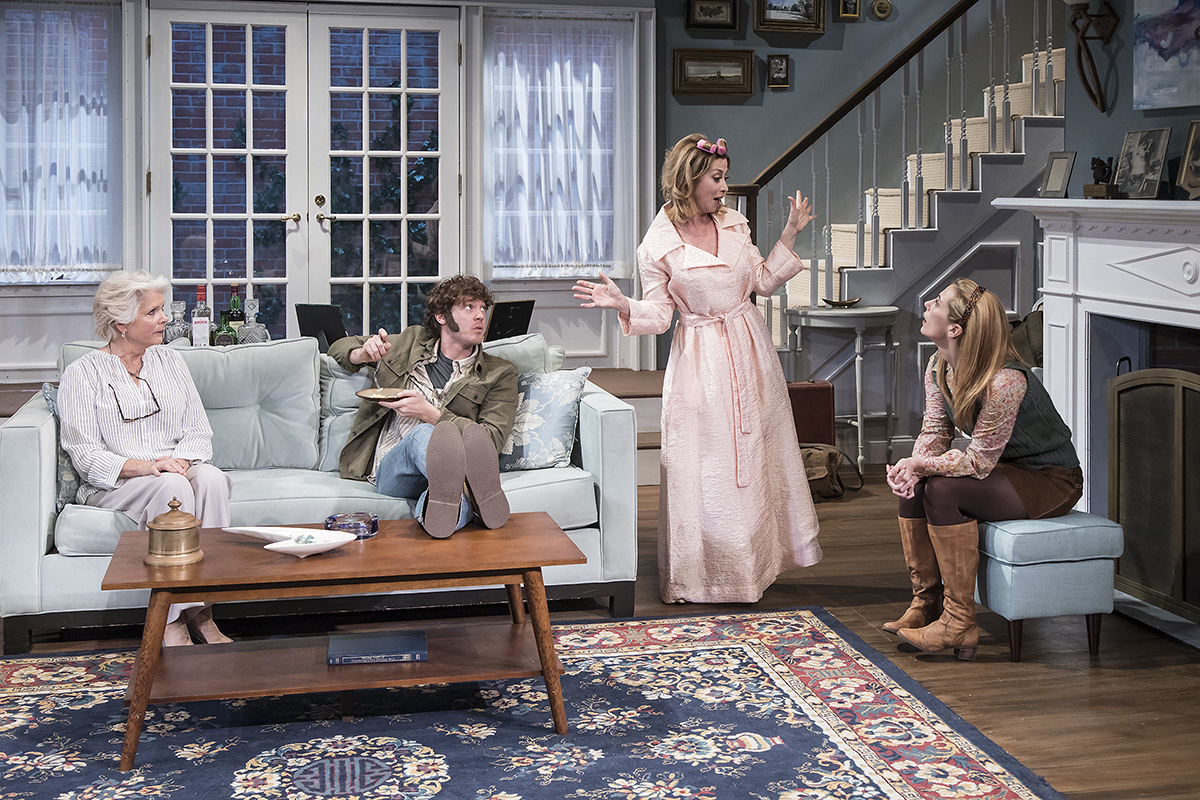Review: THE CITY OF CONVERSATION at Ensemble Theatre Company

Review: The City of Conversation
In Washington, D.C., they say it's now common to hear of long-standing friendships rent asunder by a new level of acrimony in partisan politics. What happens when the polarizing debates of the public sphere encroach on our personal relationships with the people we cherish most? Ensemble Theatre Company's current production of The City of Conversation by Anthony Giardina probes this question. Elegant salonnière and dyed-in-the-wool progressive, Hester Ferris (Sharon Lawrence), has been a powerful, but unseen force in American politics. From the interior of her Georgetown salon, decorated with Wedgewood blue and Federalist furnishings, she has pulled the levers of political power with the gentle art of conversation. When her son Colin (Matthew Grondin) returns home from graduate school with a new love interest, Anna Fitzgerald (Sally Hughes), and the newfangled politics of a Reagan-era conservative, the trouble begins.
Sharon Lawrence gives a bravura performance as Hester, holding the stage over three distinct epochs from the late 1970s to President Barack Obama's first inauguration. Lawrence gives shape to her character's dramatic arc even when as the plot fumbles into melodramatic terrain. The plot's lack of focus has injurious consequences for the dialogue, which should be the energizing force in a drama about conversation, but which often falls flat.
Other recent productions of this play were mounted before the election of Donald Trump. What a difference the months have made. Today, bitter political battles like the one the play turns on (President Reagan's contested nomination of Judge Robert Bork to the US Supreme Court in 1987) are waged daily, diminished in scale by the preponderance of similar struggles. The play's emotional release in the final scene depends on Hester's sense of relief when her liberal values are secured by the first election of President Obama. For an audience that realizes how much heartache Hester would have today, the keen knife of dramatic irony cuts into this catharsis.
Reader Reviews

Videos
